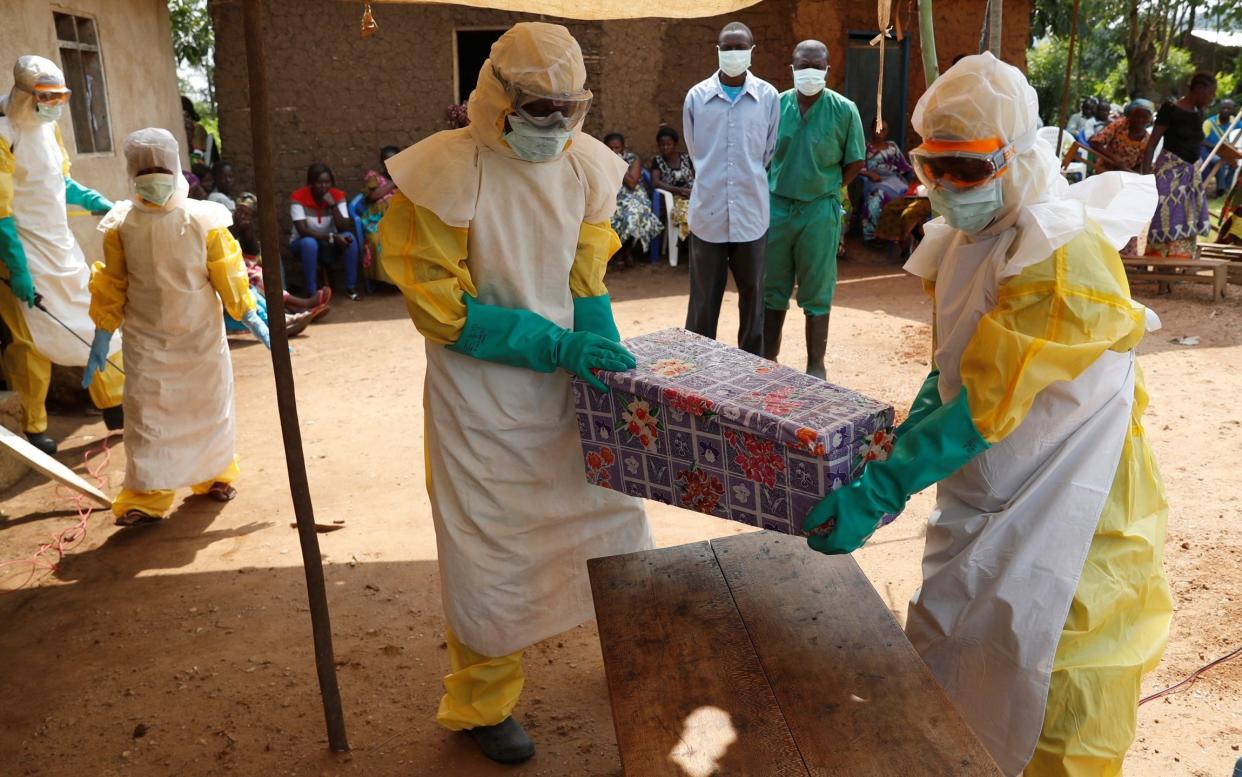Climate change could push Ebola into untouched regions, report warns

A “perfect storm” of climate change, population growth and poverty could push Ebola into previously untouched regions, experts have warned.
In a study published in Nature Communications journal, researchers used a statistical model to predict how increases in temperature and socio-economic development will affect the spread of Ebola over the next five decades.
They found that in a worst-case scenario, the area at risk of disease outbreaks could increase by 14.7 per cent, stretching beyond the current endemic zone of central Africa.
The study also found that human factors such as population growth, rising poverty levels and poor health infrastructure could cause a 50 per cent rise in the number of outbreaks.
Ebola was first discovered in the Democratic Republic of Congo, then Zaire, in 1976 and since then there have been 23 recognised outbreaks – predominantly in central Africa, with 10 in the DRC alone.

The north of the country has been battling an outbreak since August 2018, and 2,150 people have so far died.
The epidemic is second in size only to the devastating west Africa outbreak between 2013 and 2016, which killed more than 11,000 people mainly in Guinea, Liberia, and Sierra Leone.
But according to the new research, climate change could mean more countries in northern, eastern and southern Africa see Ebola outbreaks. The study highlighted Nigeria as a “key area for epidemics to be initiated”, along with, Ghana, Kenya and Rwanda.
Climate change will impact the spread because Ebola is zoonotic, meaning it spreads to humans from animals.
Though not confirmed, it is thought that Ebola originates in species such as apes and fruit bats, which prefer warm and wet conditions – conditions that will become more common on the continent as temperatures rise.
This will be compounded by increased contact with humans as a population boom will push people into previously untouched forests, which are home to apes and bats.

By 2070, the model predicted that there will be a 1.75 to 3.2-fold increase in the rate at which the deadly virus spreads from animals to humans.
But irrespective of the impacts of climate change, the report’s authors say that the global community can mitigate the risk of Ebola by supporting development, decreasing poverty and investing in health infrastructure.
“Even with climate change increasing, there was a strong effect of [these factors] in the model,” said Dr David Redding, fellow in the department of genetics, evolution and environment at University College London (UCL).
“If we work cooperatively to increase the development of countries at risk, we will all see a benefit from increased health security – both in the region and spreading more widely of the risk. It’s a win win,” he added.

The model also predicted that every 43.5 years, based on current trends, there could be a “catastrophic epidemic” – where Ebola emerges in a major city with global transport connections.
“This is not something we’ve ever experienced, and we’re not saying it is definitely going to happen... but it is not an implausible scenario,” said Dr Redding told The Telegraph.
“Very occasionally we can get this perfect storm situation, with a spillover [outbreak] next to a very large city.
“By bad luck somebody infected could fly to another very large city, at that point spreading [Ebola] very quickly,” he said.
Protect yourself and your family by learning more about Global Health Security

 Yahoo News
Yahoo News 
